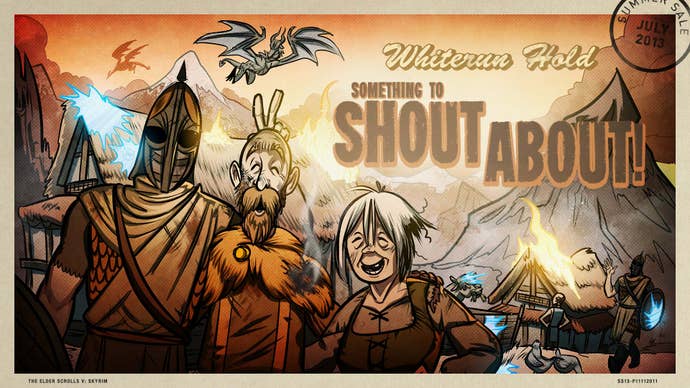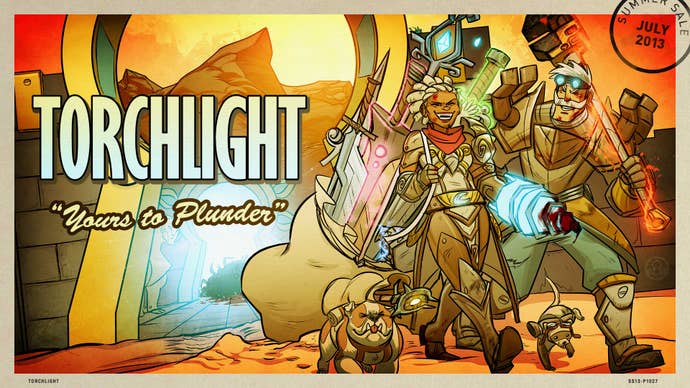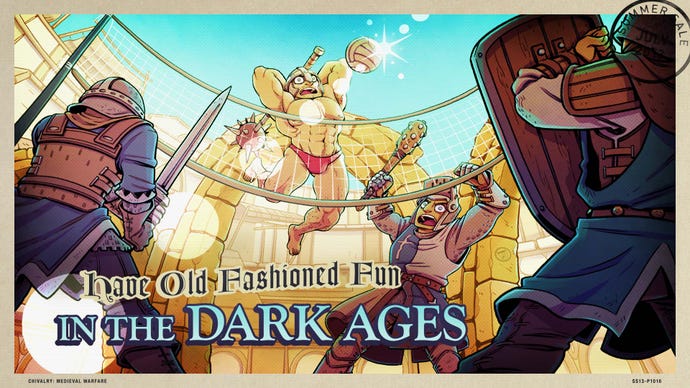Here's One Way to Tackle the Backlog
Some of us have a bigger backlog problem than others. But how to deal with it when it's 500 games strong?
This article first appeared on USgamer, a partner publication of VG247. Some content, such as this article, has been migrated to VG247 for posterity after USgamer's closure - but it has not been edited or further vetted by the VG247 team.
I'm one of those people who buys games that I intend to play in the future rather than right away.
In my case, it's partly a side-effect of being interested in rarer titles such as Japanese role-playing games that tend to have more limited print runs -- I want to be able to play these games at some point in the near future without having to pay considerably more than their original retail price for the privilege, and I also prefer physical copies -- but I'm certainly not immune to the lure of Steam sales and, less frequently, bundle packages.
These things, between them, are probably responsible for the vast majority of most backlogs -- assuming you're at least a part-time PC gamer.
It's easily done -- a Steam sale rolls around, you see something you've been mildly curious about appear at 75% off, so you drop a few dollars on it without a second thought. It then proceeds to sit in your library for the rest of eternity, potentially never touched. This problem only got compounded with the recent launch of Steam's trading cards program -- something which I'm still undecided in my opinion of -- as the more money you spent in the recent Summer Getaway sale, the more cards you picked up.
"A byproduct of my purchasing habits was that I stopped enjoying playing games as much as I should."
Reddit user Ruteqube

Bundles make it even easier to amass a significant quantity of games you quite possibly won't play. Look at the currently running Humble Bundle, for example. It's not unreasonable to assume that a lot of people will be picking this up purely to get Saints Row The Third -- by far the most well-received, most successful title in that lineup -- for not very much money. This, however, also leaves them with copies of Saints Row 2, Risen 2, Sacred 2 and, depending on how much they paid, possibly the two Dead Island games, too.
How do you approach tackling your backlog, then, particularly if the prospect of buying a new game fills you with guilt over the hundreds of other things you haven't beaten?
Reddit user Ruteqube has a potential solution -- one that works for Steam users, anyway. In Ruteqube's case, tackling the backlog was something they felt they needed to do in order to be able to enjoy the hobby again.
"A byproduct of my purchasing habits was that I stopped enjoying playing games as much as I should," Ruteqube writes. "Whenever I was playing a game, I felt the weight of my backlog, and I would often feel guilty for playing a game I enjoyed and had played for a while when there were so many that I hadn't even touched. Even when I wasn't playing games, I felt the shadow of my backlog behind me. I looked at any free time as hours that were best utilized by sinking them into my massive library. I often sat through social situations flummoxed at how much time I was spending not putting time into my Steam library."
Ruteqube calculated that it would take three years to complete the 250 untouched games they had left in their library, assuming each game was about five hours long and if they played for about eight hours a week. They accepted, however, that the assumption most games would be five hours or less was somewhat tenuous, and thus the final figure would probably be much higher.
"Doing the actual math was humbling," writes Ruteqube, "as it put into perspective just what trap I'd fallen into. I'd been buying games under the assumption that 'some day' I'd be able to get around to them, but instead I'd dug myself a hole that actually prevented that 'some day' from ever happening. There would never be a glorious moment when I was free to play whatever my heart desired because I was always saddling my heart with more and more desires while simultaneously letting it only pursue one at a time. Slowly."
Clearly, a different approach was needed. And thus Ruteqube came up with a solid idea for clearing the backlog -- one that can work for pretty much anyone.
"Doing the actual math was humbling, as it put into perspective just what trap I'd fallen into."
Reddit user Ruteqube

The key way in which Ruteqube rethought the plan was in changing the definition of "clearing" the backlog. "Clearing" didn't have to mean "completing" the games; instead, they set themselves the goal that they would try every game in their backlog for at least an hour, and actually complete the games they tried that they ended up enjoying without guilt. Games that weren't engaging after an hour, however, would be discarded and not returned to.
"Many would probably argue that it takes far less than an hour to discern whether or not you're into a game, and, after having gone through this, I'd say that's probably accurate," says Ruteqube. "What I wanted to accomplish in setting that as a threshold was to avoid the situation where I played a game for four minutes, didn't like the tutorial or first level or whatever, and then moved on. I've found that many games take time to kind of open up and show you what they have to offer, especially when the first part of the game is them laying out their story and mechanics for you. Most games, I would argue, try really hard to make us care about them, but that takes time and isn't usually doable inside of 10 minutes."
Other participants in Ruteqube's thread then chimed in with their own approaches to this, with a common approach being to categorize games not necessarily according to genre, but into groups such as "now playing," "intend to play," "finished" and "played but don't intend to finish." It's also worth making use of Steam's ability to sort games and show only those that are installed at any one time, as this allows you to focus on just the titles that are immediately to hand.
Ultimately, though, the key thing to remember is that games are a medium of entertainment. The moment it starts feeling like "work" to slog through what should be things you want to engage with, it's time to take a step back and consider why you're doing what you're doing. While you can't get rid of stuff you've purchased on Steam you have no intention of playing, you can at least uninstall and hide them.
Similarly, if you have a significant physical "pile of shame," consider whether you really need all of them. If you have no intention of actually playing something and it's just taking up space on your shelf, do you really need to keep it? "Yes" is a valid answer -- some people just like to collect. If the answer is "no," however, consider getting rid of those games somehow. Trade them in, sell them to collectors, donate them to a charity.
Hopefully then you'll be able to game without guilt.
